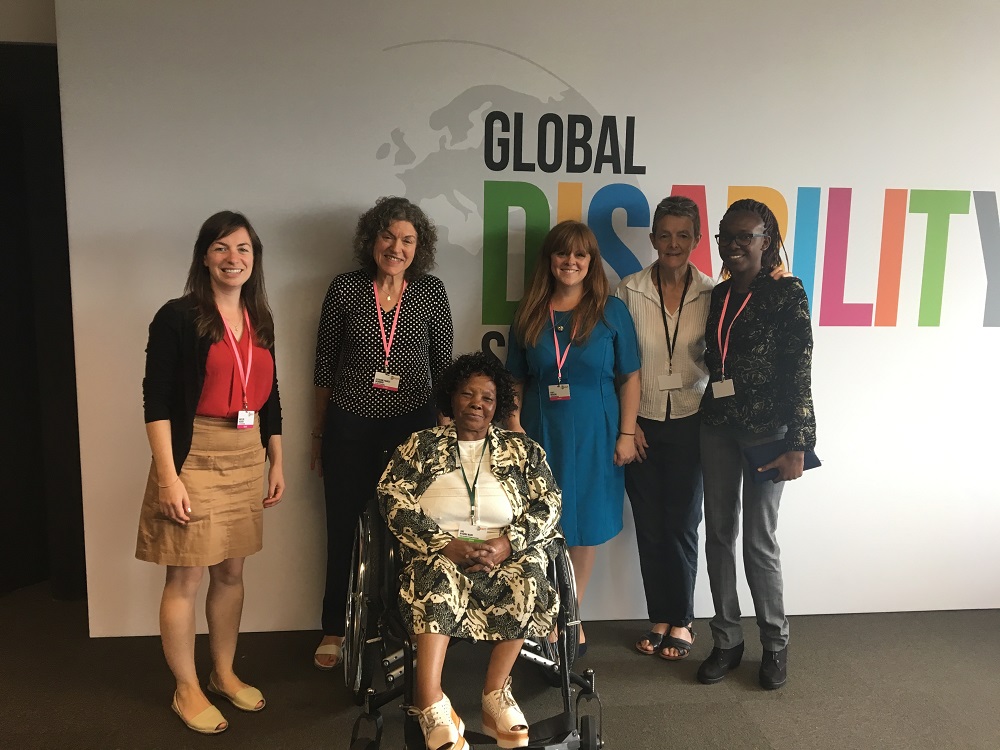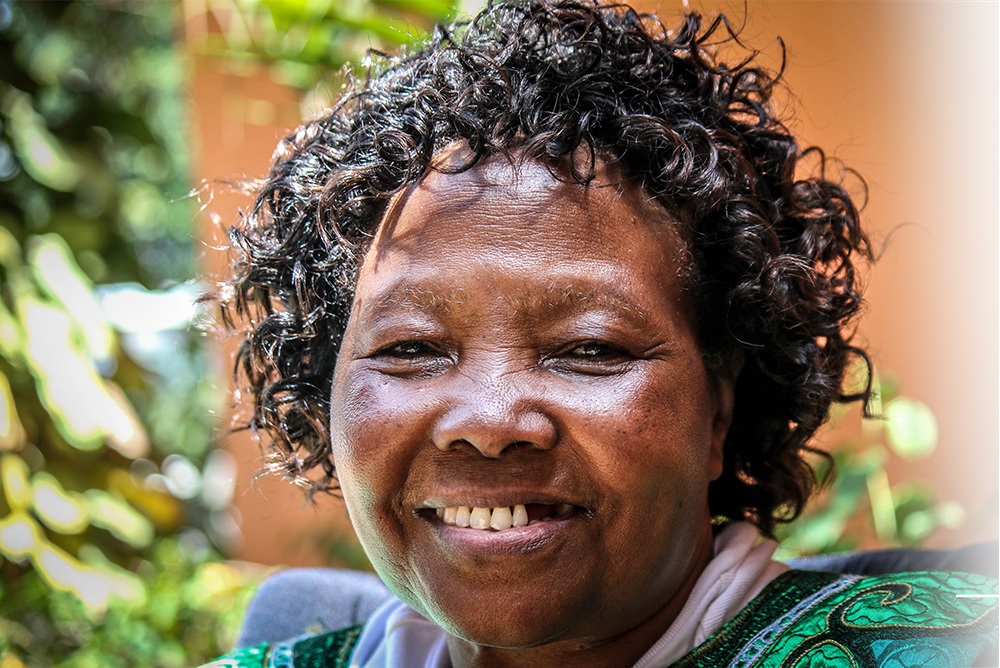I live with my mum, who is 88 and visually impaired, and I look after her. We also live with a caregiver who takes care of both of us. I make artwork with beads to earn a living.
How did you get involved in campaigning for older people’s rights?
Despite living with a disability all my life, having suffered a bout of polio when I was eight months old, I was still able to use public transport until I was around 55. But in August 2004, while attending an international theological/disability conference in Limuru, Kenya, I got very embarrassed when I was carried on a clergyman’s back to alight from a minibus that had taken the delegates on a trip. I was never able to walk using my caliper and a pair of elbow crutches again. I had to use a wheelchair from that point onwards.
Undeveloped infrastructure means I am denied many chances to join a business and social trips. I cannot make independent decisions as to where I want to go and when without involving others because I will need to be assisted. I depend so much on other people’s decisions.
Soon after that incidence, I realised there was a need to campaign for older people’s situation to be improved, especially on the availability of assistive products. It was then I added older people’s rights to the disability awareness programme I began in 2002.
Have you ever experienced discrimination because of your age?
In 2014, I was nominated by the United Disabled Persons of Kenya to attend independent living training in Japan. But I was unable to go because the government was only sponsoring younger people. Someone from the relevant ministry called to get my information, but cut-off the communication immediately after I mentioned my age. I felt angry and embarrassed.
Also, some time back a friend of mine was denied a rental house due to her age. She was told to go away because at her age she should have been staying in her own house instead of renting. She was embarrassed and very annoyed.
My disability greatly contributed to the failure of my marriage, and consequently I have no children of my own. In Kenya, marriage is a community affair, rather than between two people. As an older woman without a husband or children, the community treats you as if you have less value. They want to deny your family inheritance.

What are your proudest moments as a campaigner?
I have spoken at many national and international events, but my proudest moment as a campaigner is when HelpAge International and Age International organised for me to speak at the Global Disability Summit in London in July 2018. Many organisations signed up to the summit’s Charter for Change commitments towards making assistive technologies accessible.
What are you campaigning for right now, and how are you doing it?
I am currently campaigning for universal health care in Kenya, improved access to the social protection, more affordable and accessible assistive devices, more accessible infrastructure, better safety for older women and greater support for carers.
I am organising awareness meetings at faith-based institutions and community centres for people with disabilities and older people together with their caregivers in which I invite political and religious leaders, as well as the media. I lobby and advocate, and speak on the radio and television to get my message across.
What effect has campaigning had on you as an older person?
Campaigning for older people’s rights has changed my attitude towards myself and others. I used to pity myself and feel inferior. I kept away from social gatherings. But since I started campaigning, I have gained the confidence to share my problems and opinions. I am able to encourage and counsel other older people.
How are things improving for older people in your country?
There is now a universal pension for older people who are 70 and above, and we have a National Hospital Insurance Fund card that gives people who receive the pension free healthcare. But there are still challenges. Only a few older people have access to free out-patient medical services, many older people travel long distances to access their pension, and older people are not listened to because they lack a forum to participate and share their problems and concerns.
Read more stories from older campaigners.

